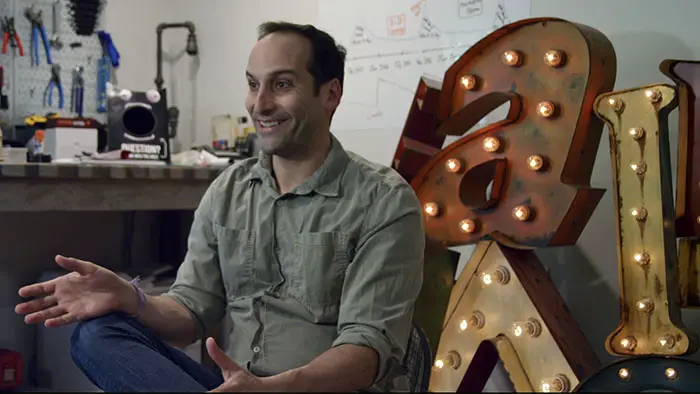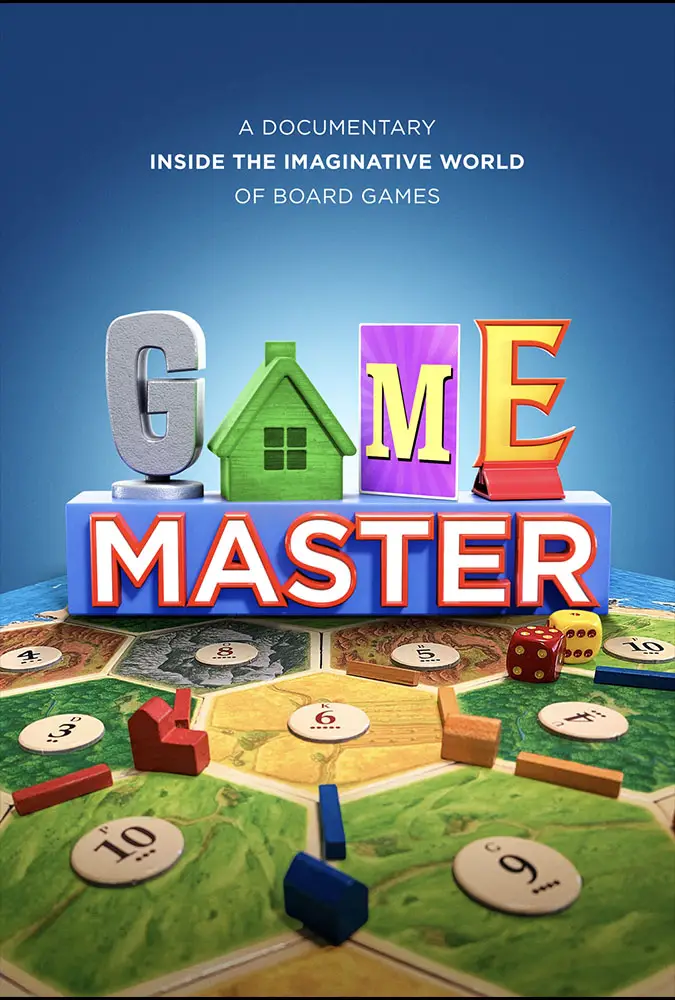
Gamemaster, directed by Charles Mruz, opens by telling us that we are about to embark on the “journey of four aspiring board game designers as they navigate the tabletop industry and bring their creations to life.” The film thus follows those creators through the ups and downs over a few years of their lives. We are then introduced to Jason Serrato of Thug Life, a game inspired growing up in an environment where the game world was not entirely accessible; Charlie Bink who created, alongside his parents, Trekking the National Parks and turned it into the family business; Scott Rogers who wants to create his own “Star Wars universe” with Rayguns and Rocketships; and Nashra Balagamwala whose Arranged! is inspired by her escaping a forced marriage in Pakistan. The four creatives tell us how they came to work in games, wax nostalgic about the sense of escapism games procured in them since they were children, and get visibly excited discussing the pleasure they feel now, not only inventing and creating a universe of their own but also seeing others enjoy their games.
Gamemaster intertwines the protagonists’ interviews with several people in the industry, such as famous game designers and game awards representatives. Players at various conventions are also talked to, in order to understand what the consumer truly wants. This is where we learn more about why “we are now in the middle of a tabletop renaissance,” a growing 3 billion dollar industry. We are told of the numerous considerations to be thought through, such as “table presence” and what will pull in new gamers to new games.

“…the ‘journey of four aspiring board game designers as they navigate the tabletop industry’…”
We are given an overview of what all game designers need to ace in terms of what one calls “flavor” or theme, “mechanics” or what you do in the game, and the “data.” Participants surprisingly point out that the most tedious and challenging part of it all is designing the rule book, as it often ends up being a major disappointment for everyone. However, the documentary is solely about the designers and does not venture into the games themselves (but one might have enjoyed learning how to play some of those games!)
In recent years, thanks to the aforementioned “gameboard renaissance,” many, like the subjects here, had their dreams come true. But we see how success is fragile as the game business is akin to the film industry. An interviewee will further the comparison explaining that you can make ten projects, but only two will make money; hence no one in their right mind is in games for money. Calling back to its intro, Gamemaster inserts quirky graphics and animated videos here and there to illustrate the economy of this business. They are pleasant additions but do make us wonder why more animations aren’t present. Or, why not push it further and get very meta by playing with the games’ format to explain things!

"…visibly excited discussing the pleasure they feel now, not only inventing and creating a universe..."


